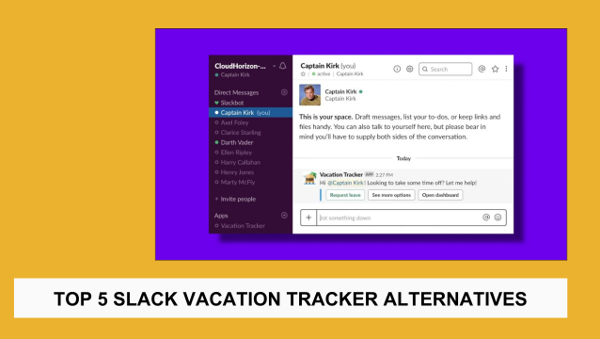As a menstruating person, the first thing that comes to mind when you get your period is the discomfort it brings. It can be a debilitating situation sometimes, especially if you are busy at work and have no time to go home and rest. It’s no secret that periods can make a menstruating person feel uncomfortable.
During this time of the month, they may experience debilitating pain, bloating, and fatigue—all of which can make it hard to concentrate on the job at hand. And it’s not just the physical symptoms that can have an effect: mentally, some women may experience undue anxiety and anger too.
Thankfully, many countries now have menstrual leave policies in place to help menstruating people deal with this issue. In addition, some companies even provide women with paid leave during this time or allow them flexible working arrangements.
However, not all countries (and certainly not all companies) recognize the need for an official policy regarding this matter. So what’s the deal here? What do these policies entail exactly? And why should you care about menstrual leave as an employee?
Period or menstrual leave has been a debate for a very long time. Spain became the first European country to offer women a menstrual leave joining the likes of Japan, South Korea, and Zambia.
However, the US is still resistant to accepting this policy. A 2017 study revealed that almost 600 respondents think that granting a menstrual leave will have a negative impact on the organization. Most people believe it will be unfair to men and that this policy would make women look bad.
Let’s get into the detail of the benefits and drawbacks of a menstrual leave:
What is a Menstrual Leave?
A menstrual leave, also known as a “period leave” or “menstruation leave,” is an employee’s right to have time off from work because of the physical discomfort associated with their period. It is typically required by law in countries where menstruation leaves are offered. In some cases, employers may allow employees to work from home during their period, but this is not guaranteed.
There are no laws mandating that employers offer menstrual leaves in the United States, but some companies have started to offer them voluntarily.

The Benefits of Period Leave
“For so long, menstruation has been associated with shame, and opening a dialogue can lead people who are suffering in silence to claim the time they need. It can also encourage them to seek help from a doctor for debilitating symptoms”, says Dr. Cindy Duke.
In order to be successful in the modern workplace, a company must be able to provide its employees with the best possible conditions for success. One of these conditions is having an atmosphere that encourages women to speak up about their needs and concerns.
Many women experience pain during their periods and need time off work to manage the pain. However, this can often lead to them being seen as unreliable employees who are unable to perform at their best because they are “not feeling well.”
This is why offering menstrual leave to your employees is so important: it allows them to take time off without feeling like they’re failing at their job or letting anyone down. It also helps foster an environment where employees feel comfortable discussing their bodies openly and honestly without fear of judgment or ridicule from coworkers or supervisors. An atmosphere that facilitates cooperation and collaboration between employees of all genders!
It Helps Women Feel Heard
About 6 months ago, Nuvento, a software company, announced their employees can take time off for menstrual leave.
“But paid period leaves can change this situation. When you are entitled to something, you have the power to choose whether to take it or not. When you are entitled to period leaves, you can choose whether to take them and when to take them depending on your individual needs and health.” Gargi Nair, Content Writer at Nuvento Inc
Following in similar footsteps, Modibodi, an Australian company, launched a policy entitling its employees to paid leave explicitly for menstruation, menopause, and miscarriage, in addition to the company’s existing sick leave entitlements.
Modibodi employees will accrue an additional 10 days of paid personal leave per year for menstruation, menopause discomfort, or in the event of a miscarriage.
“We’re giving employees the option to take paid leave days for either menstruation or menopause or to choose to work from home during days when they’re feeling discomfort. We want our staff to be able, to be honest about their experiences of menstruation, menopause, and miscarriage by encouraging people to feel comfortable asking for support and understanding when they need it,” said Kristy Chong, Founder, and CEO.
Improved Employee Engagement and Loyalty
An organization offering menstrual leave will see an increase in employee engagement and loyalty. This is because the employee feels like their needs are being met, which increases their loyalty to the company and their willingness to give more of themselves.
Improves Wellbeing
While this is pretty evident, offering menstrual leave to women will allow them to take a day or two off of work without feeling guilty. Not only will they come back to work feeling more productive but with more energy. In addition, offering a day off o women without sacrificing their pay will allow women to feel better, especially those who suffer from issues like PCOS, Endometriosis, PMDD, and so on.
A Flexible World for Women
Introducing paid menstrual leave could also normalize the conversation about periods. Women are expected to be reserved and secretive about their periods. Menstruation is still a taboo topic in many cultures around the world, and even in countries like the United States, where we talk openly about it, women are often forced to hide their tampons or pads while they’re at work or school.
Paid menstrual leave would allow women to feel more comfortable talking about their periods with their coworkers and employers—and it would give them a chance to openly discuss how they need support during those days of the month.
The Disadvantages of Period Leave
For one thing, it’s extra work for the HR department. Not only do they have to write up and explain the policy, but they also have to keep track of who is taking it and for how long. They will have to deal with any questions about whether or not someone’s menstrual pain counts as an eligible reason for taking time off. And of course, there will be complaints from employees who feel unfairly excluded from this benefit.
Another problem with offering menstrual leave is that it could actually cause more harm than good. If people start using it too often, then it will become a serious drain on productivity—especially if employees use it as an excuse for being late or skipping out on meetings. Even worse, if people start using this time off as a way to avoid doing their jobs, then that would lead to resentment among coworkers.
Since many people believe offering a menstrual leave is unfair to non-menstruators, you need to be careful not to alienate men. If you offer paid menstrual leave only to women, it can make them feel like they’re being excluded from an important part of the company culture.
Could be Discriminatory
Menstrual leave is a great way for women to feel more comfortable and healthy. But the downside is that it could lead to discrimination against women in the workplace.
Many people think that women are less capable than men, so when they see that a woman is taking time off for her period, they might assume she’s not as good at her job as a man would be. In reality, taking time off for your period does not mean you’re any less capable than someone who doesn’t have a cycle.
Privacy Issues
Most women are shy about informing someone about their periods, let alone asking for leave from an employer. Most women feel uncomfortable when they know their boss is aware of their reason for leaving.
Study showed 70% of the 700 participants didn’t feel comfortable talking to their managers about how they could accommodate their menopausal symptoms.
Biases in Hiring
From a hiring point of view, an employer could select someone who would take less time off. Period Leave policies can make it unfavorable for most women.

Sample Period Leave Policy
At [company name], we believe that the health and well-being of our employees are paramount. For that reason, we offer a period leave policy that allows our employees to take time off during their menstrual cycles without fear of penalty or discrimination.
- A menstrual leave day can be taken if the employee experiences pain or discomfort which prevents them from performing work duties to the best of their ability
- Menstruating employees can take a maximum of 12 paid days per calendar year
- One off day may be taken per month for menstrual leave
- The request for menstruation leave should be submitted in the same way other leaves are requested
- A medical certificate is not required for this leave
Manage all your Leaves in One Click
AttendanceBot helps you manage time off in the easiest way. Whether it’s a menstrual leave or any other leave, it handles everything pretty well. Users need to simply send a message like ‘sick today’ or ‘on leave from 25th Jan to 28th Jan’ or ‘WFH tomorrow’ to request a leave. The manager can approve it right inside Slack or Microsoft Teams in a matter of minutes.
Final Word on Menstrual Leave
The decision to give women menstrual leave has become a hotly debated topic in the workplace; many organizations have refused to allow employed women time off purely by citing financial losses, while others have taken a bureaucratic route and refused to approve leaves under the pretext that they cannot afford to pay employees during their absence.
Women cannot control their menstruation symptoms, and this is something that they are expected to go through every month until menopause. Being able to take menstrual leave might be a small victory for women who are struggling with terrible periods.
If your company doesn’t already have a policy in place, perhaps it is time for you to start looking into this yourself and consider creating a proposal for your company to implement a menstrual leave policy. There are many benefits to doing so, including better conditions for women at work who suffer from debilitating symptoms during their period and helping raise awareness about menstruation.




